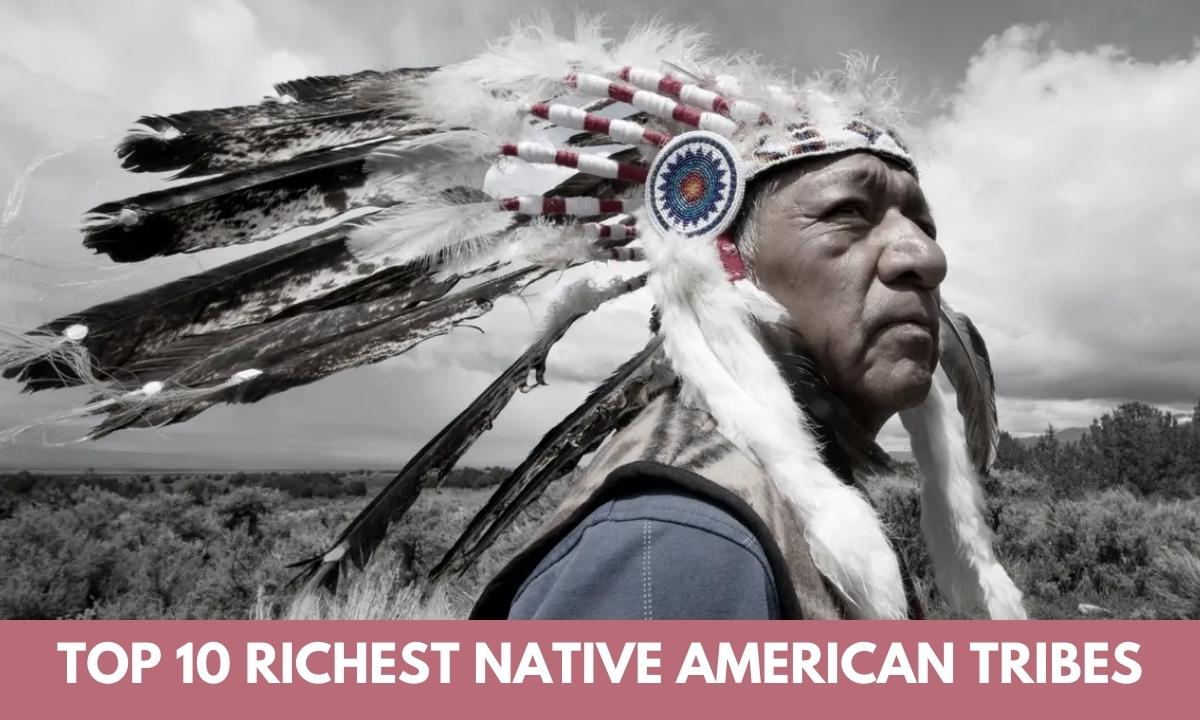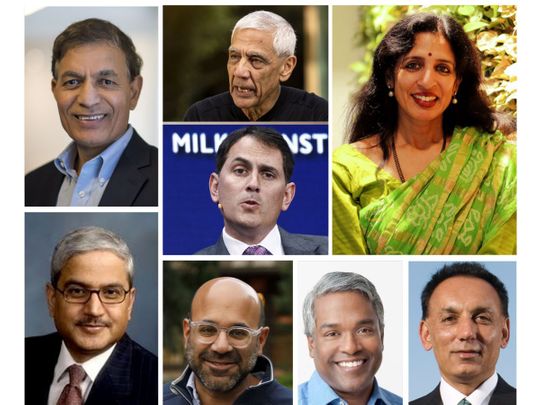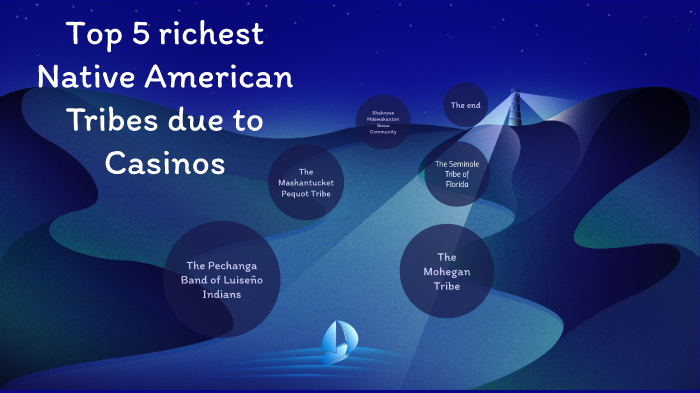The Richest Native Americans: A Look at Wealth and Legacy
The Richest Native Americans: A Look at Wealth and Legacy

The history of Native Americans in the United States is marked by resilience, hardship, and a profound connection to the land. Despite centuries of colonization, displacement, and cultural suppression, Native American communities have persevered, and many individuals have achieved remarkable success in various fields. While wealth is often associated with material possessions and financial status, it can also be a reflection of cultural richness, historical significance, and the power to create positive change. This article delves into the stories of some of the wealthiest Native Americans, exploring their diverse paths to success and the impact they have made on their communities and beyond.
Understanding Wealth in the Context of Native American History
Related Articles: The Richest Native Americans: A Look at Wealth and Legacy
- Supporting Indigenous Businesses: A Guide To Native American-Owned Companies
- Unfurling The Colors Of Resilience: A Deep Dive Into The Significance Of Indigenous Flags
- The Enigma Of Blue Eyes In India: A Journey Through Genetics, History, And Culture
- Unmasking The Wealth: Who Is The Richest Native American Tribe?
- The Riches Of The Desert: Exploring The Wealth And Legacy Of The Tohono O’odham Nation In Arizona
When discussing wealth among Native Americans, it’s crucial to acknowledge the complex historical context. For generations, Native communities thrived on a system of communal living and resource sharing, prioritizing collective well-being over individual accumulation. Traditional values emphasized respect for the land, spiritual connection, and the importance of community over individual ambition.
The arrival of European colonists disrupted this system, leading to the dispossession of land, forced assimilation, and the erosion of traditional ways of life. The concept of individual wealth, as defined by Western standards, became a foreign concept for many Native Americans.
Therefore, assessing wealth among Native Americans requires a nuanced approach that goes beyond simple monetary value. It encompasses:
- Land Ownership and Tribal Sovereignty: Many tribes have successfully reclaimed ancestral lands, asserting their sovereignty and securing economic independence.
- Cultural Heritage and Traditional Knowledge: The preservation and revitalization of Native languages, arts, and spiritual practices are invaluable assets that contribute to the well-being of communities.
- Entrepreneurship and Economic Development: Native-owned businesses, casinos, and other ventures have created jobs and generated revenue, contributing to economic self-sufficiency.
- Philanthropy and Social Impact: Many wealthy Native Americans are dedicated to supporting their communities through education, healthcare, and other initiatives that address historical inequities.

Notable Wealthy Native Americans
While specific financial details are often kept private, here are some individuals who have made significant contributions and achieved notable success:
1. The Cherokee Nation:
The Cherokee Nation, based in Oklahoma, is one of the largest and most prosperous tribes in the United States. The tribe’s economic success is largely attributed to its ownership of the Cherokee Nation Businesses (CNB), a diversified company with interests in gaming, hospitality, energy, and technology. CNB has generated significant revenue for the tribe, which is used to fund various social programs, educational initiatives, and economic development projects.

2. The Oneida Nation:
The Oneida Nation, located in New York, has also achieved economic success through its ownership of Turning Stone Resort Casino. The casino has become a major tourist destination, generating revenue for the tribe and supporting various community initiatives, including healthcare, education, and cultural preservation.
3. The Mashantucket Pequot Tribal Nation:
The Mashantucket Pequot Tribal Nation, based in Connecticut, is known for its ownership of Foxwoods Resort Casino, one of the largest casinos in the world. The tribe’s economic success has allowed them to invest heavily in community development, education, and cultural programs.
4. The Mohegan Tribe:

The Mohegan Tribe, also located in Connecticut, owns and operates Mohegan Sun Casino, another major gambling destination. The tribe has used its wealth to create a thriving community with a focus on economic development, education, and healthcare.
5. The Chickasaw Nation:
The Chickasaw Nation, based in Oklahoma, has experienced substantial growth in recent years, fueled by its diversified business holdings, including gaming, healthcare, and energy. The tribe’s economic success has allowed them to invest in infrastructure, education, and healthcare for their citizens.
6. The Seminole Tribe of Florida:
The Seminole Tribe of Florida, known for its successful gaming operations, including the Hard Rock Hotel & Casino, has achieved significant economic growth. The tribe’s wealth has enabled them to invest in education, healthcare, and community development projects.
7. Jimmie Allen:
Jimmie Allen, a renowned country music singer and songwriter, is a member of the Sac and Fox Nation of Oklahoma. He has achieved significant commercial success, earning numerous awards and accolades. Allen has used his platform to advocate for Native American representation in the music industry and to promote cultural understanding.
8. Sherrilyn Ifill:
Sherrilyn Ifill, a prominent legal scholar and civil rights advocate, is a member of the Cherokee Nation. She served as the president and director-counsel of the NAACP Legal Defense and Educational Fund, Inc., where she led numerous legal battles to advance racial justice and equality.
9. Charles Trimble:
Charles Trimble, a prominent Native American historian, author, and advocate, is a member of the Oglala Lakota tribe. He has dedicated his life to preserving Native American history and promoting cultural understanding. Trimble has authored numerous books and articles and has received numerous awards for his contributions.
10. Suzan Shown Harjo:
Suzan Shown Harjo, a renowned Native American activist and advocate, is a member of the Cheyenne and Hodulgee Muscogee tribes. She has been a vocal advocate for Native American rights and self-determination, working tirelessly to address issues such as treaty rights, cultural preservation, and environmental protection.
The Impact of Wealth on Native American Communities
The wealth generated by successful Native American individuals and tribes has had a profound impact on their communities. It has enabled them to:
- Improve Healthcare: Invest in healthcare facilities, programs, and services, addressing historical disparities in access to quality healthcare.
- Enhance Education: Fund educational institutions, scholarships, and programs, promoting academic achievement and cultural knowledge.
- Support Economic Development: Create jobs, stimulate economic growth, and foster entrepreneurship, promoting self-sufficiency and economic independence.
- Preserve Cultural Heritage: Fund cultural preservation efforts, revitalize traditional languages, and support the arts, ensuring the continuity of Native traditions.
- Advocate for Social Justice: Provide resources and support for advocacy organizations, working to address systemic inequalities and promote social justice for Native Americans.
Challenges and Opportunities
While wealth has brought significant benefits to many Native American communities, it is important to acknowledge the challenges that persist:
- Economic Inequality: Wealth is not evenly distributed within Native American communities, and many individuals continue to face poverty and lack of access to essential services.
- Cultural Loss: Despite efforts to preserve cultural heritage, the erosion of traditional languages and knowledge remains a concern.
- Environmental Threats: Native lands continue to be threatened by environmental degradation, resource extraction, and climate change.
- Political Disenfranchisement: Despite legal recognition of tribal sovereignty, Native Americans continue to face political barriers and discrimination.
Despite these challenges, there are opportunities for continued growth and progress:
- Economic Diversification: Exploring new economic ventures beyond gaming, such as renewable energy, technology, and tourism, can create new opportunities for Native communities.
- Education and Workforce Development: Investing in education and training programs can equip Native Americans with the skills and knowledge needed to succeed in a changing economy.
- Cultural Revitalization: Supporting language immersion programs, cultural centers, and arts initiatives can help preserve and revitalize Native traditions.
- Political Advocacy: Continuing to advocate for Native rights and self-determination is essential to ensure that Native communities have a voice in shaping their own destinies.
Conclusion
The stories of wealthy Native Americans are testaments to resilience, determination, and the enduring spirit of their communities. While wealth is not a panacea for all the challenges faced by Native Americans, it has provided resources for positive change and empowered individuals and tribes to advocate for their rights and pursue their aspirations. By acknowledging the historical context, celebrating individual achievements, and supporting ongoing efforts to address systemic inequities, we can work towards a future where all Native Americans have the opportunity to thrive and prosper.
FAQs
1. What is the wealthiest Native American tribe?
It is difficult to definitively say which tribe is the wealthiest, as financial data for tribal governments is not always publicly available. However, some of the wealthiest tribes are known for their successful gaming operations, such as the Cherokee Nation, the Oneida Nation, the Mashantucket Pequot Tribal Nation, and the Mohegan Tribe.
2. What are the main sources of wealth for Native American tribes?
The main sources of wealth for Native American tribes vary depending on the specific tribe and its location. Some common sources include:
- Gaming: Casino operations generate significant revenue for many tribes.
- Land Ownership and Resource Extraction: Tribes with ancestral lands often lease them for oil and gas extraction or other resource development.
- Business Ventures: Many tribes have diversified business holdings, including hotels, resorts, energy companies, and technology firms.
- Federal Funding: Tribes receive federal funding for various programs, including education, healthcare, and infrastructure.
3. How does wealth impact Native American communities?
Wealth can have a positive impact on Native American communities by providing resources for:
- Healthcare: Improving access to quality healthcare.
- Education: Funding educational institutions and programs.
- Economic Development: Creating jobs and stimulating economic growth.
- Cultural Preservation: Supporting cultural revitalization efforts.
- Social Justice: Funding advocacy organizations and initiatives.
4. Are there any challenges associated with wealth among Native American tribes?
Yes, there are challenges associated with wealth, including:
- Economic Inequality: Wealth is not evenly distributed within all Native American communities.
- Cultural Loss: Despite efforts to preserve cultural heritage, the erosion of traditional languages and knowledge remains a concern.
- Environmental Threats: Native lands continue to be threatened by environmental degradation.
- Political Disenfranchisement: Native Americans continue to face political barriers and discrimination.
5. What is the future of wealth and prosperity for Native American communities?
The future of wealth and prosperity for Native American communities depends on several factors, including:
- Economic Diversification: Exploring new economic ventures beyond gaming.
- Education and Workforce Development: Investing in education and training programs.
- Cultural Revitalization: Supporting language immersion programs, cultural centers, and arts initiatives.
- Political Advocacy: Continuing to advocate for Native rights and self-determination.

Closure
Thus, we hope this article has provided valuable insights into The Richest Native Americans: A Look at Wealth and Legacy. We thank you for taking the time to read this article. See you in our next article!


